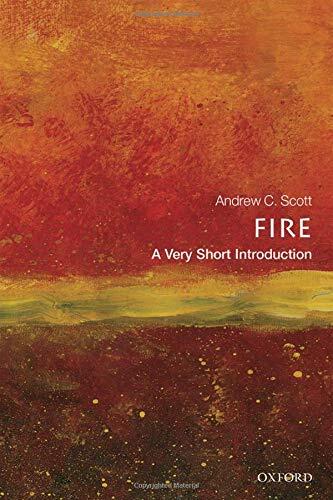
Fire: A Very Short Introduction
von
Andrew C. Scott
Noch keine Bewertungen
Romance
History
Format
Taschenbuch
Seiten
176
Sprache
Englisch
Veröffentlicht
Sep 1, 2020
Verlag
Oxford University Press
Ausgabe
Illustrated
ISBN-10
0198830033
ISBN-13
9780198830030
Beschreibung
Andrew C. Scott delves into the multifaceted role of fire in both natural ecosystems and human society. He examines how this elemental force shapes landscapes, influences climate, and even affects various species of flora and fauna. With fires making headlines due to their devastating effects, Scott offers a timely exploration of their significance, drawing connections between natural occurrences and anthropogenic impacts.
Through thoughtful analysis, the author highlights fire's dichotomy as both a destructive and regenerative force. He discusses how fire has been a pivotal part of human history, from prehistoric times used by early humans for warmth and safety, to its contemporary implications in land management and climate change discourse. The reader gains insight into how societies respond to fire, balancing the need for ecological health with the dangers posed by wildfires.
Scott’s succinct yet rich narrative not only enlightens about the science of fire but also poses critical questions about its future in a rapidly changing world. This exploration invites readers to appreciate the complexity of this phenomenon and challenges them to rethink their relationship with fire.
Through thoughtful analysis, the author highlights fire's dichotomy as both a destructive and regenerative force. He discusses how fire has been a pivotal part of human history, from prehistoric times used by early humans for warmth and safety, to its contemporary implications in land management and climate change discourse. The reader gains insight into how societies respond to fire, balancing the need for ecological health with the dangers posed by wildfires.
Scott’s succinct yet rich narrative not only enlightens about the science of fire but also poses critical questions about its future in a rapidly changing world. This exploration invites readers to appreciate the complexity of this phenomenon and challenges them to rethink their relationship with fire.
Rezensionen
Noch keine Rezensionen
Sei der Erste, der dieses Buch rezensiert und deine Gedanken teilt
Erste Rezension hinzufügenLesetagebuch
Keine Lesetagebücher gefunden
Beginne deinen Lese-Fortschritt zu verfolgen, um Log-Einträge hier zu sehen
Füge dein erstes Lesetagebuch hinzuNotizen
Transaktionsprotokoll
Keine Transaktionsprotokolle gefunden
Beginne, deine Buchtransaktionen zu verfolgen, um Log-Einträge hier zu sehen
Fügen Sie Ihr erstes Transaktionsprotokoll hinzu